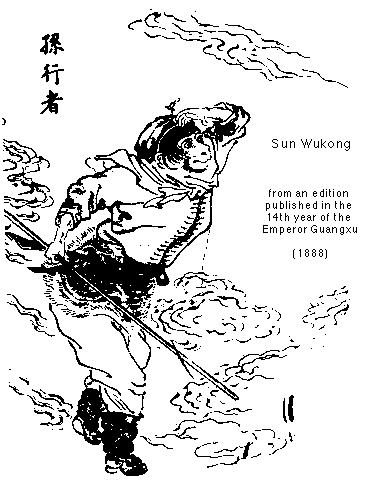
novelist and poet, author of Hsi-yü-chi ("Journey to the West", also known as "Monkey King"), b. c. 1500 (Shan-yang, Huai-an, China), d. 1582 (Kiangsu).
Wu was educated in the classical tradition of Confucius. He became known as a writer of poetry and prose in the classical style. Of these works only two survived; they were discovered in the imperial palaces and reprinted in 1930.
Wu's main fame, however, rests on his presumed authorship of Hsi-yü-chi ("Journey to the West"), one of China's best known and famous novels. Not written in classical style but in ordinary Chinese, the work had to be published anonymously, or Wu's reputation as a writer would have suffered. For a long time his authorship was therefore only known in his native district.
Wu Ch'eng-en had always had an interest in folktales. Hsi-yü-chi is the fruit of his collection of stories. In 100 chapters it tells the adventures of the Buddhist monk Hsüan-tsang and his companions during their travels to India. Hsüan-tsang is, of course, a historical figure, but his companions are ficticious characters typical of folk tales:
The hero of the tale is monkey, who with his supernatural powers overcomes all obstacles to their voyage, whether these are monsters or demons intent on devouring Hsüan-tsang, witches trying to trick him into marriage or just to seduce him to enjoy the pleasures of the flesh, or natural calamities such as river crossings with monsters lurking in the deep.
Hsi-yü-chi was first published in 1592, ten years after Wu's death. The work has remained immensely popular ever since, not only in China but also in Japan, where it is told and retold in countless comic books. It was made into a movie with Japanese actors and into an animated movie as well.
